
Larissa: The Heartbeat of Thessaly
Larissa, the capital of the Thessaly region, is a city that beautifully blends ancient history with modern vibrancy. As one of the oldest continuously inhabited cities in the world, Larissa offers tourists a unique glimpse into Greece's rich past while providing all the amenities and attractions of a bustling urban center. Nestled in the fertile plains of central Greece, Larissa's strategic location has made it a significant cultural and economic hub for centuries. Start your journey at the ancient theater of Larissa, a remarkable site that dates back to the 3rd century BC. This well-preserved monument offers a window into the city's Hellenistic period and is still used for performances today. Nearby, the Alcazar Park provides a serene escape with its lush greenery, walking paths, and riverside views. The park is perfect for a relaxed afternoon or a scenic picnic. The city's vibrant markets and bustling squares, such as the central square of Eleftherias, invite you to explore local Greek life. Here, you can taste traditional dishes at family-owned tavernas, shop for unique souvenirs, and experience the warm hospitality that Greece is famous for. Don't miss the opportunity to visit the Diachronic Museum, where you can delve deeper into the region's extensive history through its vast collection of artifacts. For those interested in contemporary culture, Larissa's modern art scene is thriving. The Municipal Art Gallery of Larissa - G.I. Katsigras Museum houses an impressive collection of contemporary Greek art. Additionally, the city's numerous festivals and events ensure there's always something happening, whether it's a local celebration or an international performance. Larissa is also a gateway to nearby natural wonders. The stunning Meteora monasteries and the mythical Mount Olympus are just a short drive away, making Larissa an ideal base for exploring the wider region. Whether you're an avid history buff, a nature lover, or simply looking to experience authentic Greek culture, Larissa has something to offer every traveler.
Local tips in Larissa
- Visit early in the morning to avoid the midday heat, especially during summer.
- Wear comfortable walking shoes as many attractions are best explored on foot.
- Check the local event calendar for festivals and performances to make the most of your visit.
- Try the local cuisine, especially the traditional Greek pastries and mezes.
- Consider renting a car if you plan to visit nearby attractions like Meteora or Mount Olympus.
Larissa: The Heartbeat of Thessaly
Larissa, the capital of the Thessaly region, is a city that beautifully blends ancient history with modern vibrancy. As one of the oldest continuously inhabited cities in the world, Larissa offers tourists a unique glimpse into Greece's rich past while providing all the amenities and attractions of a bustling urban center. Nestled in the fertile plains of central Greece, Larissa's strategic location has made it a significant cultural and economic hub for centuries. Start your journey at the ancient theater of Larissa, a remarkable site that dates back to the 3rd century BC. This well-preserved monument offers a window into the city's Hellenistic period and is still used for performances today. Nearby, the Alcazar Park provides a serene escape with its lush greenery, walking paths, and riverside views. The park is perfect for a relaxed afternoon or a scenic picnic. The city's vibrant markets and bustling squares, such as the central square of Eleftherias, invite you to explore local Greek life. Here, you can taste traditional dishes at family-owned tavernas, shop for unique souvenirs, and experience the warm hospitality that Greece is famous for. Don't miss the opportunity to visit the Diachronic Museum, where you can delve deeper into the region's extensive history through its vast collection of artifacts. For those interested in contemporary culture, Larissa's modern art scene is thriving. The Municipal Art Gallery of Larissa - G.I. Katsigras Museum houses an impressive collection of contemporary Greek art. Additionally, the city's numerous festivals and events ensure there's always something happening, whether it's a local celebration or an international performance. Larissa is also a gateway to nearby natural wonders. The stunning Meteora monasteries and the mythical Mount Olympus are just a short drive away, making Larissa an ideal base for exploring the wider region. Whether you're an avid history buff, a nature lover, or simply looking to experience authentic Greek culture, Larissa has something to offer every traveler.
When is the best time to go to Larissa?
Iconic landmarks you can’t miss
Πάρκο Αλκαζάρ
Experience the lush beauty and tranquility of Πάρκο Αλκαζάρ, a serene city park in Larissa, Greece, perfect for relaxation and recreation.
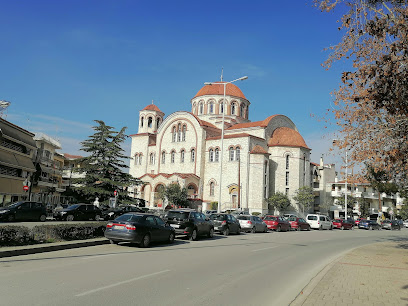
Mill of Pappas
Explore Larissa's industrial past and vibrant present at the Mill of Pappas, a cultural center hosting diverse events and activities.
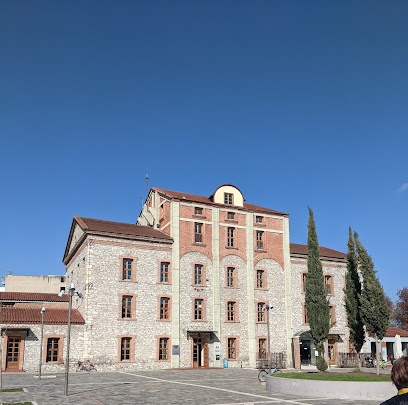
Park of Wishes
Experience a magical day at Larissa's Park of Wishes, with attractions and beautiful landscapes for the whole family.
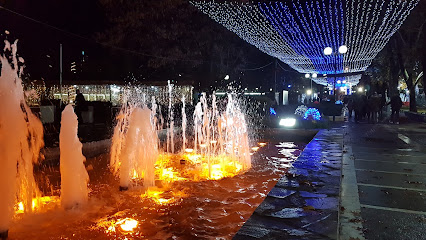
Chatzichalar park
Escape to the tranquility of Chatzichalar Park in Larissa, a green oasis perfect for relaxation, recreation, and community events.
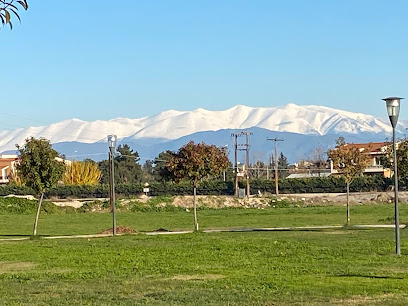
Diachronic Museum of Larissa
Explore 10,000 years of Thessalian history at the Diachronic Museum of Larissa, from ancient artifacts to Byzantine treasures.
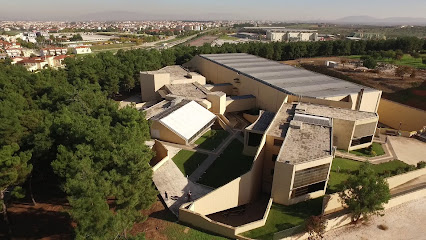
Ancient Theatre of Larissa
Explore the grandeur of ancient Greece at the Ancient Theatre of Larissa, a historical landmark showcasing the region's rich cultural heritage.
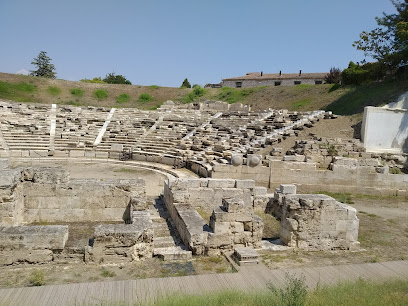
Larissa Ancient Ruins
Discover the captivating Larissa Ancient Ruins, a historical landmark showcasing Greece's rich heritage and architectural beauty in the heart of Larissa.
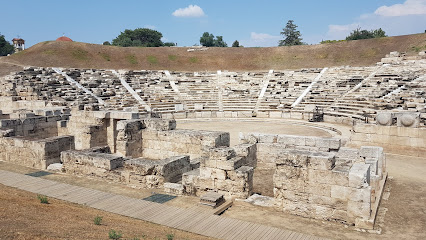
Αισθητικό Άλσος Λάρισας
Escape to Larissa's Aesthetic Grove: A serene retreat offering natural beauty and tranquil walking paths, just moments from the city center.
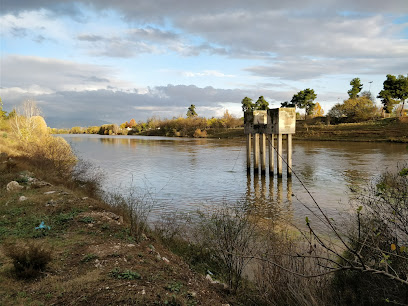
Mezourlos Grove
Escape to the tranquility of Mezourlos Grove in Larissa, a green oasis perfect for relaxation and nature walks.
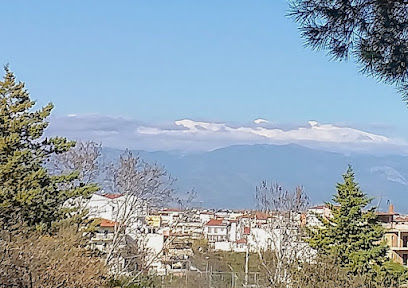
Β' Αρχαίο Θέατρο Λάρισας
Explore the ruins of Larissa's 2nd ancient theatre, a window into the city's Hellenistic and Roman past. A historical landmark worth discovering.
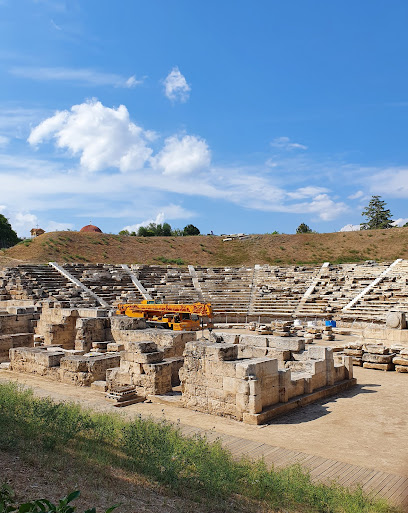
Folklore Museum of Larissa
Explore Thessaly's cultural heritage through a vast collection of artifacts at the Folklore Museum of Larissa.
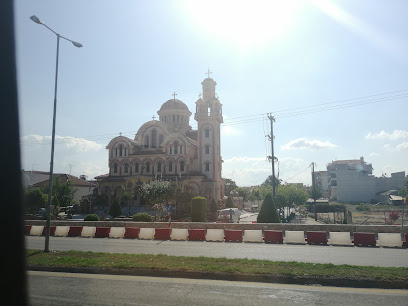
National Resistance Museum
Explore stories of bravery and resilience at the National Resistance Museum in Larissa, a tribute to Greece's fight for freedom during WWII.
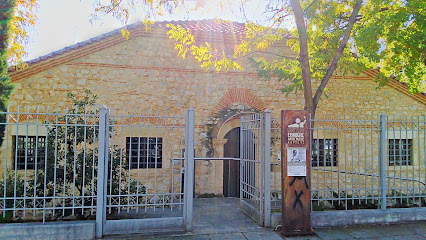
Hippocrates Monument
A monument in Larissa honoring Hippocrates, the Father of Medicine, and his enduring legacy to medical science.
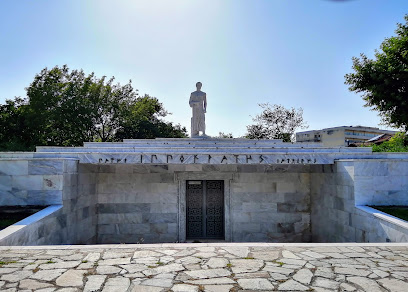
Γενί Τζαμί Λάρισας
Discover the historical gem of Gení Tzamí Larissas, where ancient architecture and local culture converge in the heart of Greece's vibrant Larissa.
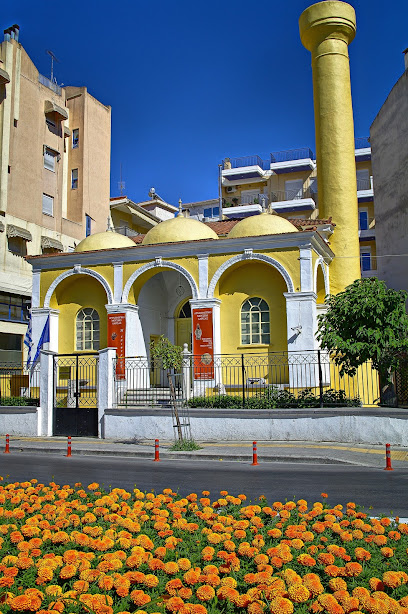
Μπεζεστένι Λάρισας
Explore the enchanting Mpezesteni in Larissa, Greece, a historical landmark rich in culture and architectural beauty, perfect for every traveler.
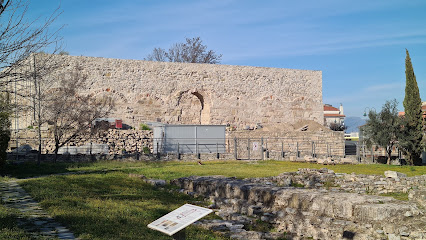
Unmissable attractions to see
Πάρκο Αλκαζάρ
Explore the enchanting Πάρκο Αλκαζάρ in Larissa, a lush city park perfect for relaxation, family picnics, and enjoying the beauty of nature.
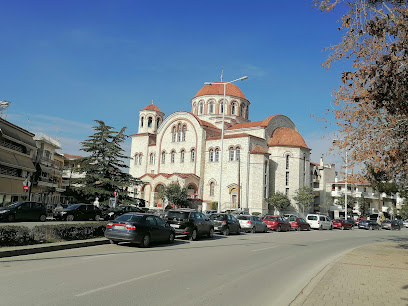
Mount Olympus National Park
Explore the breathtaking landscapes, rich biodiversity, and ancient myths of Mount Olympus National Park, Greece's legendary natural wonder.
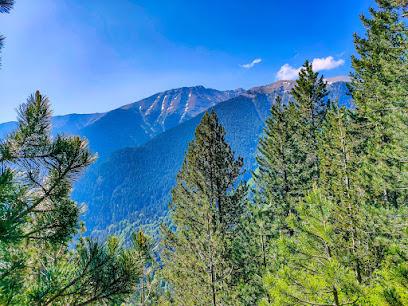
Municipal Art Gallery of Larissa G.I. Katsigras Museum
Discover the treasures of modern Greek art at the Municipal Art Gallery of Larissa G.I. Katsigras Museum, a cultural highlight in Larissa.
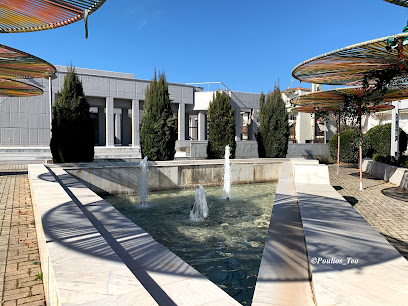
Park of Wishes
Discover the enchanting Park of Wishes in Larissa, a family-friendly theme park filled with thrilling rides, beautiful landscapes, and magical experiences.
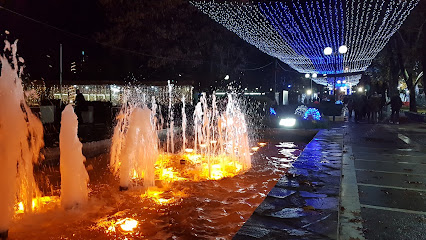
Chatzichalar park
Discover the tranquil beauty of Chatzichalar Park in Larissa, a perfect urban escape for nature lovers and adventure seekers alike.
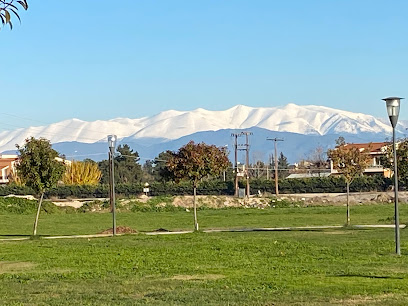
Saint Antonios Park
Explore the tranquil beauty of Saint Antonios Park in Larissa, a perfect destination for nature lovers and those seeking relaxation in Greece's vibrant city.
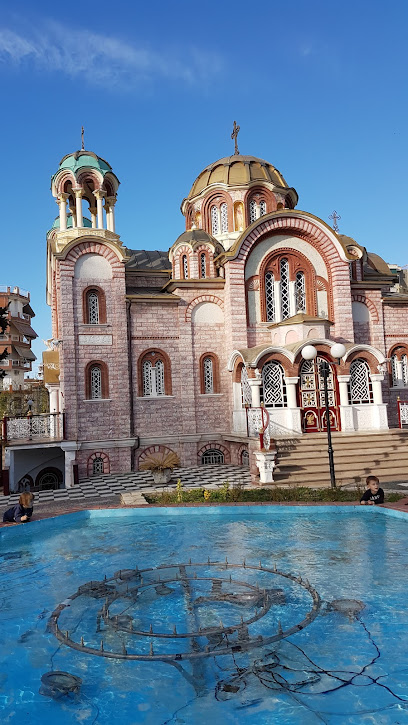
Diachronic Museum of Larissa
Explore the Diachronic Museum of Larissa, a treasure trove of Greek history and art, featuring stunning artifacts and captivating exhibitions.
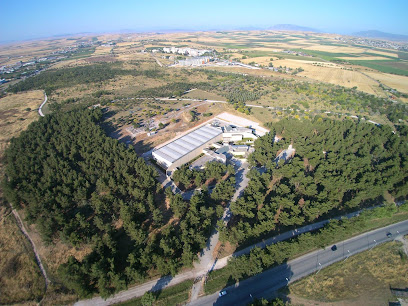
Ancient Theatre of Larissa
Explore the Ancient Theatre of Larissa, a captivating historical landmark showcasing the rich cultural heritage of Greece and the legacy of ancient performances.
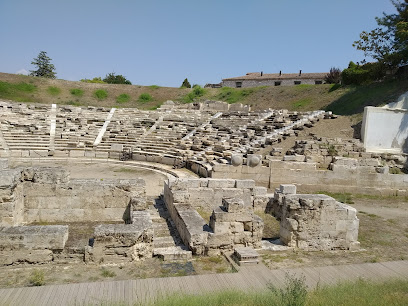
Πλατεία Εβραίων Μαρτύρων Κατοχής
Discover the tranquil beauty of Platia Evraion Martiron, a serene memorial park in Larissa honoring Greece's heroes and offering peaceful reflections.
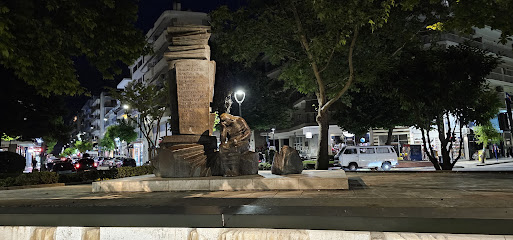
Larissa Ancient Ruins
Uncover the rich history of the Larissa Ancient Ruins, a captivating site that showcases Greece's ancient architectural marvels and cultural heritage.
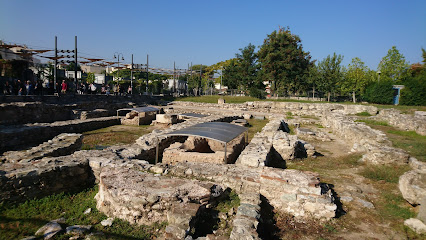
Enipeas Waterfall
Explore the stunning Enipeas Waterfall in Litochoro, Greece – a breathtaking natural wonder surrounded by lush landscapes and rich culture.
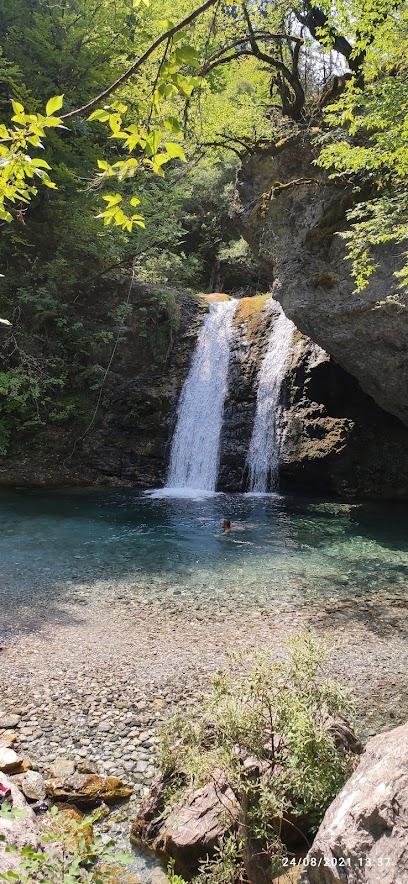
Mezourlos Grove
Explore Mezourlos Grove in Larissa, Greece: A beautiful park perfect for relaxation, picnics, and cultural events amidst nature's splendor.
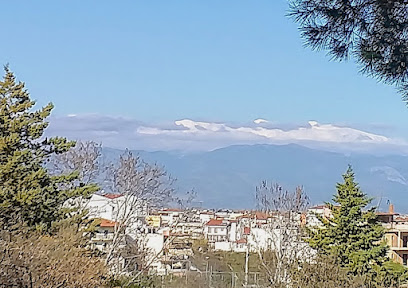
Πλατεία ΟΣΕ
Experience the serene beauty of Πλατεία ΟΣΕ, a lush park in Larissa ideal for relaxation, picnics, and enjoying nature.
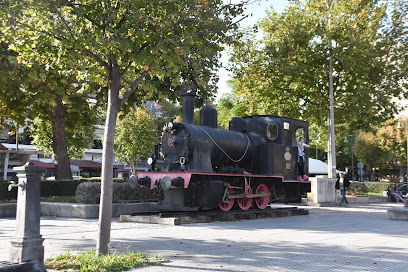
Β' Αρχαίο Θέατρο Λάρισας
Explore the B' Archaeological Theater of Larissa, a captivating historical landmark steeped in ancient Greek culture and history.
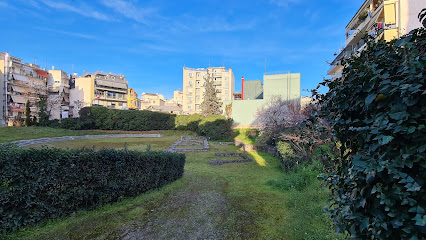
Parko
Explore the lush landscapes and tranquil paths at Parko in Larissa, a perfect retreat for relaxation and recreation amidst nature.
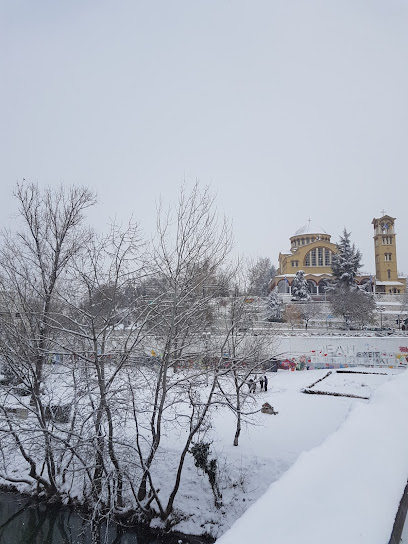
Essential places to dine
Fortress
Discover unparalleled views and authentic Greek cuisine at Fortress in Larissa—an unmissable dining destination for travelers.
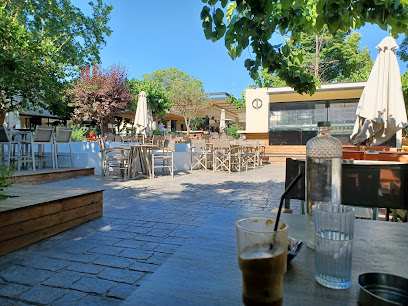
Nonna Rossa
Experience authentic Italian cuisine at Nonna Rossa in Larissa - where every meal feels like a journey through Italy.
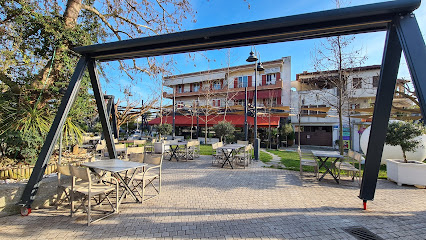
Las Ramblas Coffeebar
Experience authentic Greek brunch delights at Las Ramblas Coffeebar in Larissa - where tradition meets modern café culture.
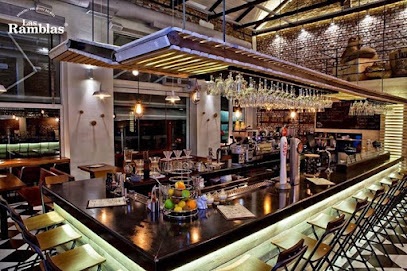
Mpakalógatos
Experience the rich flavors of Greece at Mpakalógatos in Larissa – where every dish tells a story.
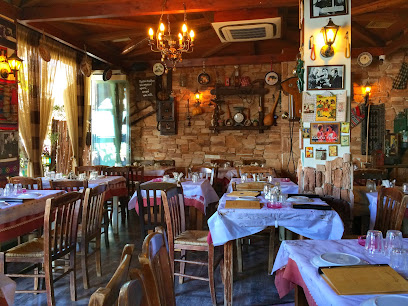
Ακαμάτρα - Akamatra
Experience authentic Greek cuisine at Akamatra in Larissa - where tradition meets modern flair.
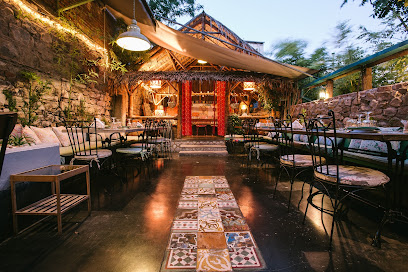
To Paradosiako
Experience authentic Greek barbecue at To Paradosiako in Larissa—where tradition meets flavor in every bite.
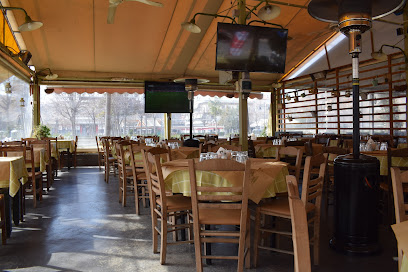
Βόσπορος | Restaurant • Bar
Discover Mediterranean culinary excellence at Βόσπορος Restaurant & Bar in Larissa, where delightful flavors meet exceptional wines.
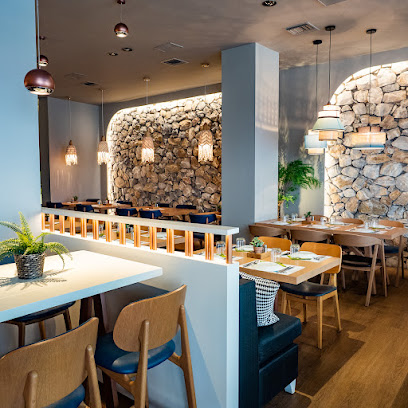
Ladókola
Discover authentic Greek cuisine at Ladókola in Larissa – where every meal tells a story of tradition and flavor.
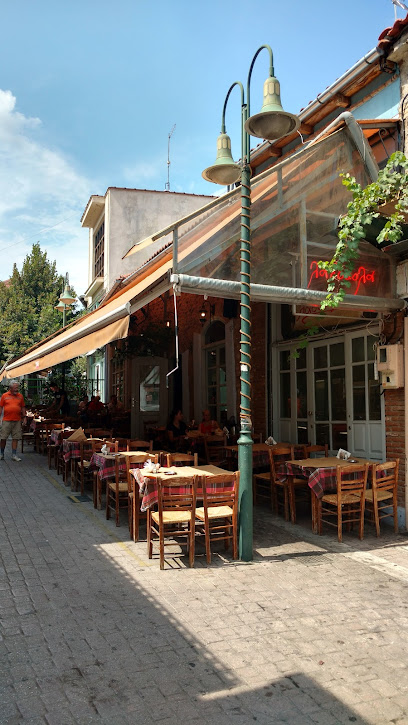
Estrella Λάρισα
Discover Estrella Λάρισα: A culinary haven in Larissa offering exquisite Mediterranean dishes in a vibrant atmosphere.
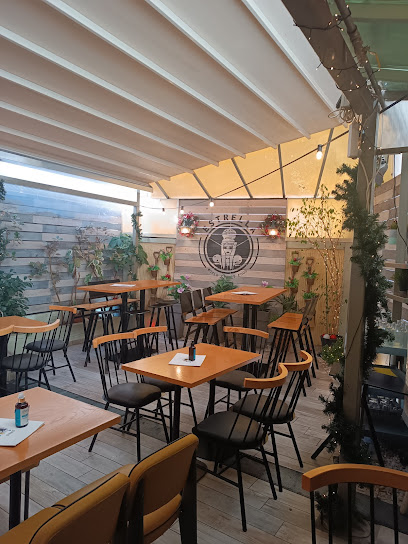
Jasmin
Discover authentic Greek flavors at Jasmin Bistro in Larissa - where every meal is a celebration of local cuisine.
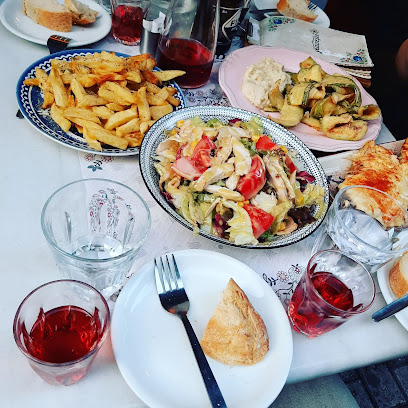
Mproúsko
Discover Mproúsko in Larissa - where authentic Greek flavors meet warm hospitality in a charming setting.
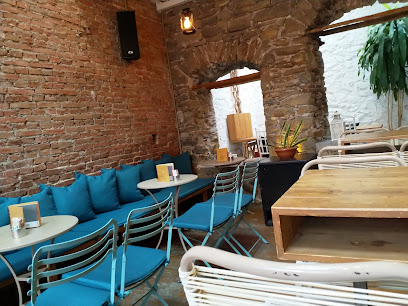
Bukowski Eatery&Drink
Discover innovative flavors at Bukowski Eatery & Drink in Larissa - where modern cuisine meets vibrant atmosphere.
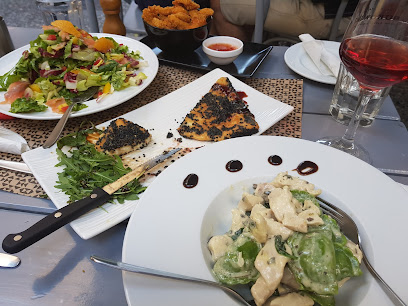
12 ώρες
Discover authentic Greek cuisine at 12 ώρες in Larissa - a culinary gem where tradition meets flavor.
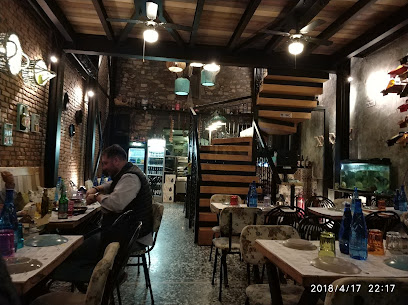
Ten Doors gastrobar
Discover the culinary magic at Ten Doors gastrobar in Larissa – where exquisite dining meets vibrant nightlife.
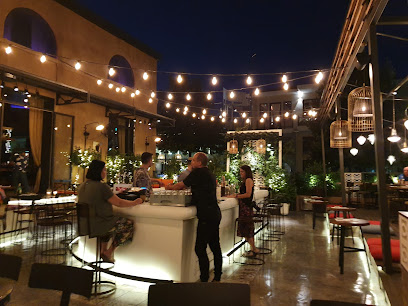
Ladophánaro
Experience authentic Greek cuisine at Ladophánaro in Larissa, where traditional flavors meet modern dining in an inviting atmosphere.
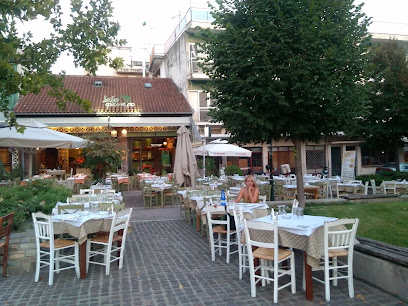
Markets, malls and hidden boutiques
Fashion City Outlet
Discover unbeatable deals and a wide variety of stores at Fashion City Outlet, the ultimate shopping destination in Larissa, Greece.
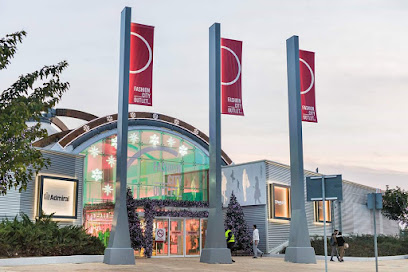
ABC China Shop
Discover the ABC China Shop in Larissa for an exciting shopping experience with a vast selection and great prices.

Bershka
Explore the latest styles at Bershka in Larissa, where fashion meets affordability in a vibrant shopping atmosphere.

SEPHORA LARISA
Discover the ultimate beauty destination in Larisa at SEPHORA LARISA, where luxury meets accessibility with a wide range of cosmetics and skincare products.

Flying Tiger Copenhagen
Explore the colorful and quirky offerings at Flying Tiger Copenhagen, a must-visit gift shop in Larissa, Greece, perfect for souvenirs and unique finds.
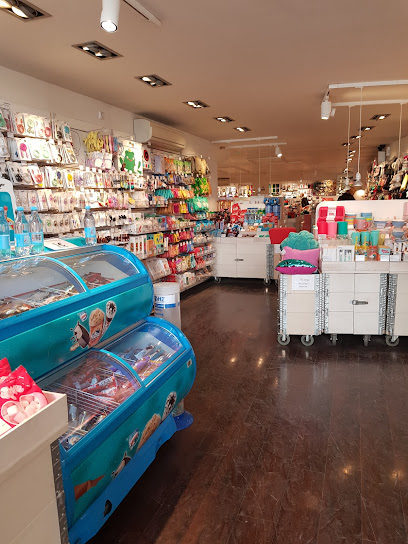
Boutique Bebe Plus
Discover Boutique Bebe Plus in Larissa, where you'll find a wide selection of quality baby products and accessories in a welcoming environment.
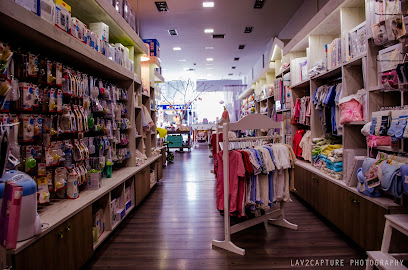
IQOS BOUTIQUE STORE ΛΑΡΙΣΑ
Explore the modern world of tobacco alternatives at the IQOS Boutique Store in Larissa, offering a stylish approach to vaporizing.
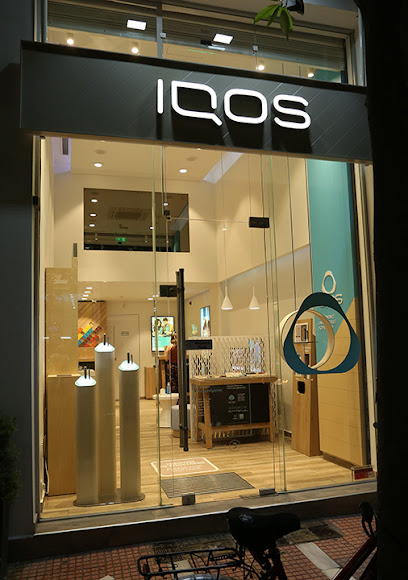
JOY handmade boutique
Explore Joy Handmade Boutique in Larissa for unique gifts and local crafts, offering a delightful experience for every visitor.
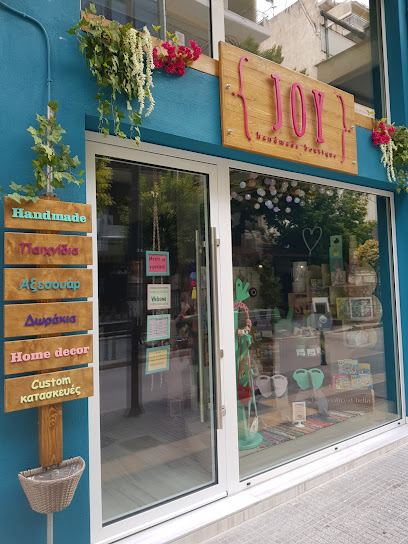
Snuff
Explore Snuff, Larissa's top music store with a treasure trove of instruments and vinyl records, celebrating the vibrant culture of sound and creativity.
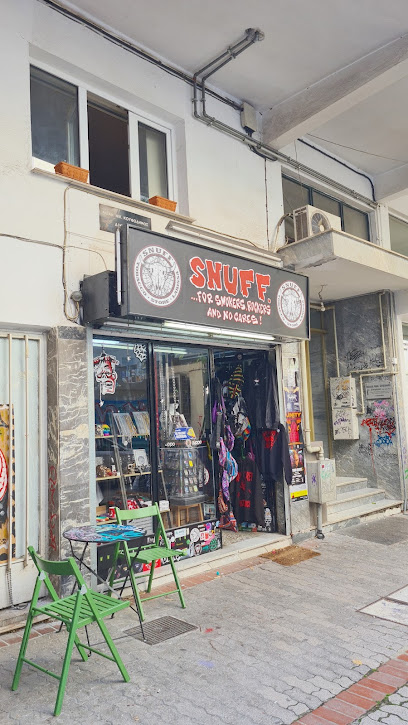
Kiddo Larisa Multistore
Explore Kiddo Larisa Multistore, your one-stop destination for children's clothing, toys, and furniture in Larissa, Greece.

TSOUKALAS Λάρισα
Discover stylish footwear and accessories at TSOUKALAS in Larissa, a fashion haven for travelers seeking quality and trend.
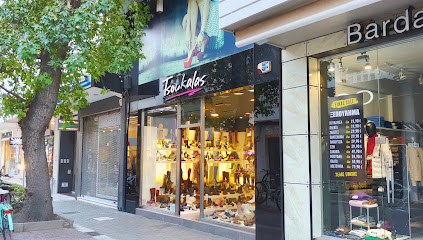
Motel Street Boutique
Explore the vibrant styles of Larissa at Motel Street Boutique, where unique fashion meets local flair and personalized service.
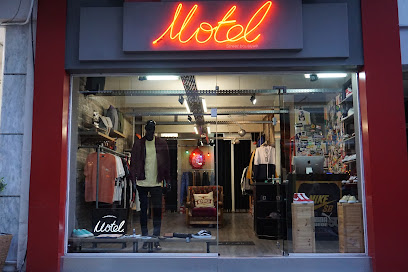
Dalamagka Maria
Discover unique fashion at Dalamagka Maria, a stylish clothing store in Larissa, Greece, where elegance meets local flair.

Ruby Boutique Γυναικεια Ρουχα
Explore Ruby Boutique in Larissa for trendy women's clothing and exceptional shopping experience that captures the essence of modern fashion.
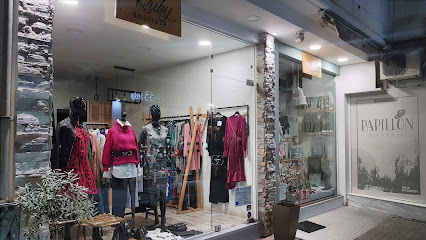
Tsarina Boutique
Explore Tsarina Boutique in Larissa for exclusive dresses, personalized service, and a taste of local fashion trends.
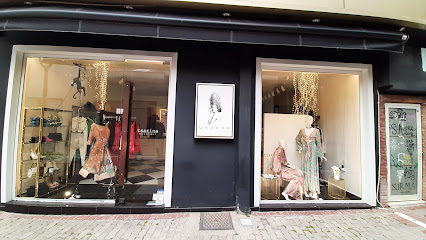
Essential bars & hidden hideouts
Klímax
Discover the essence of wine culture at Klímax, a premier wine bar in Larissa, Greece, offering a delightful bistro experience and exquisite flavors.
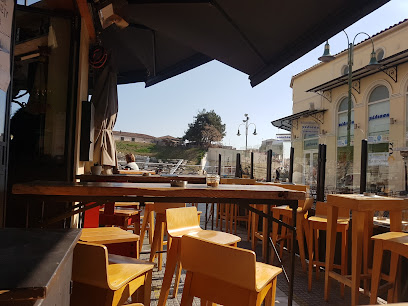
KUBRICK Pure Social “ Club ”
Experience the vibrant nightlife of Larissa at KUBRICK Pure Social, a premier cocktail bar offering expertly crafted drinks and an inviting atmosphere.
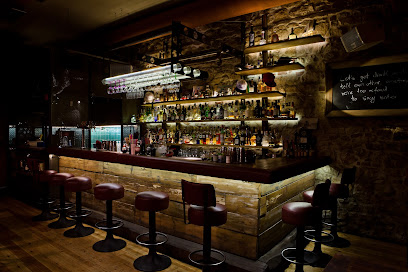
sherlock easy bar
Discover the charm of Sherlock Easy Bar in Larissa, where delightful drinks and a cozy ambiance create the perfect escape for travelers.
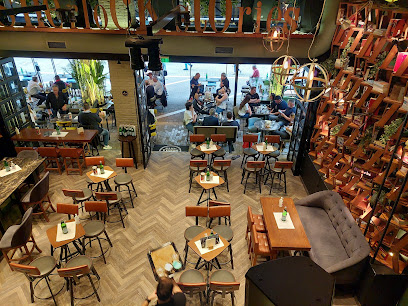
Bukowski Eatery&Drink
Discover the culinary delight of Bukowski Eatery & Drink in Larissa, where traditional Greek flavors meet modern gastronomy in a vibrant setting.
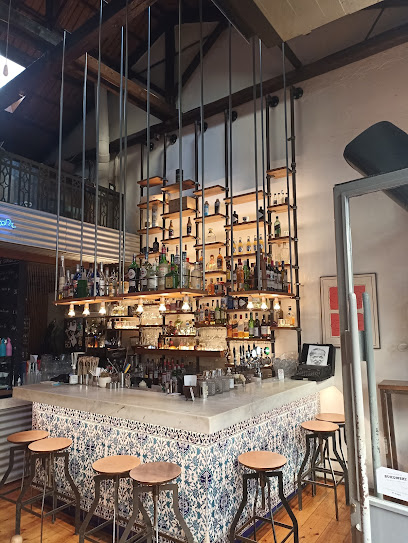
Ten Doors gastrobar
Discover the perfect blend of gourmet dining and vibrant nightlife at Ten Doors gastrobar in Larissa, Greece, where every bite is a celebration of flavor.
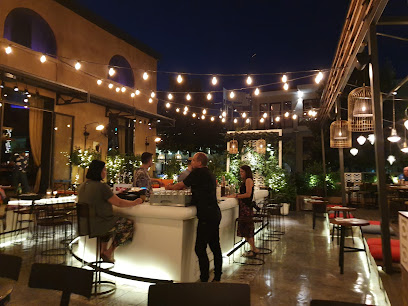
Red button Bar
Red Button Bar in Larissa: Your ultimate rock music destination for vibrant nightlife and unforgettable experiences.
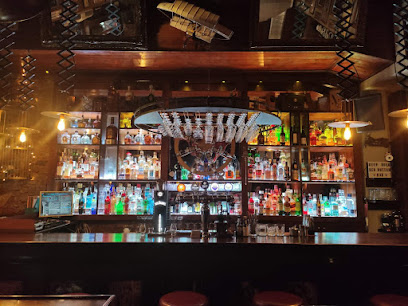
Barley's
Experience the vibrant nightlife of Larissa at Barley's, where creative cocktails and a lively atmosphere await.
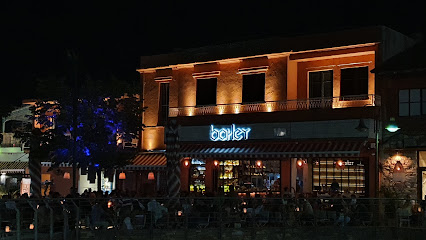
Monk
Discover the lively Monk Café Bar in Larissa, where modern ambiance meets local culture and nightlife, perfect for all travelers.
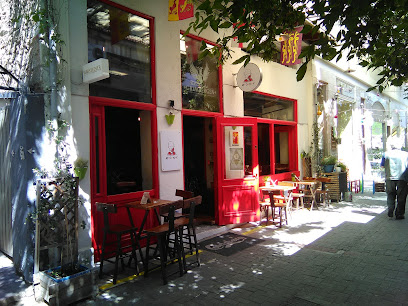
Hippy Chic
Discover Hippy Chic, the vibrant bar in Larissa, Greece, known for creative cocktails, eclectic ambiance, and unforgettable nightlife experiences.
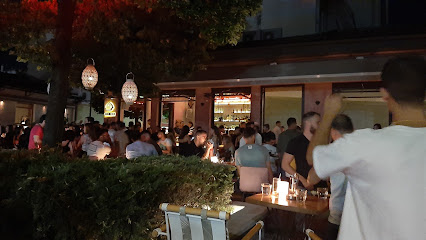
Le Coq
Discover Le Coq, a cozy bar in Larissa, where local culture meets vibrant ambiance and refreshing drinks await.
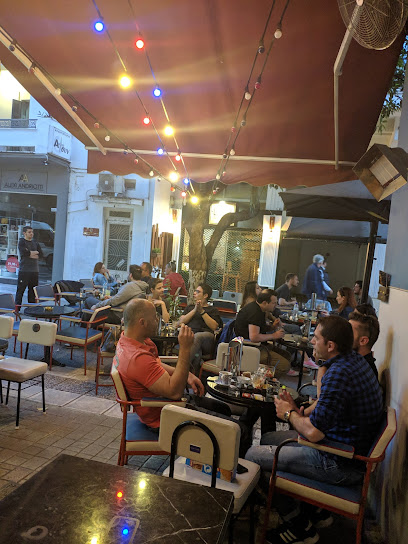
Black Rose Rock Bar
Discover Black Rose Rock Bar in Larissa – a lively spot for affordable drinks, vibrant atmosphere, and unforgettable live music in Greece.
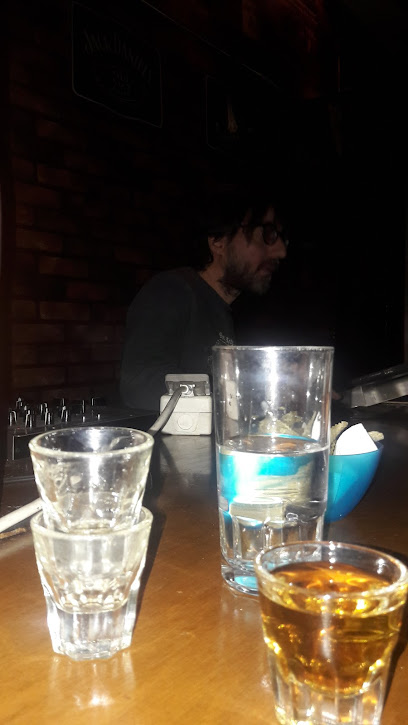
Alompár
Experience the vibrant nightlife of Larissa at Alompár, where creative cocktails and a welcoming atmosphere await.
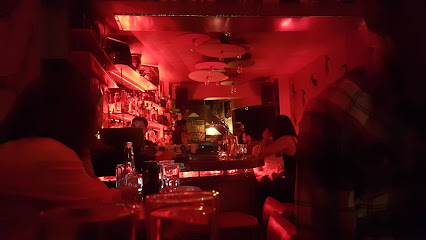
Bar Legend
Experience the vibrant nightlife of Larissa at Bar Legend, where cocktails flow and memories are made in an electric atmosphere.
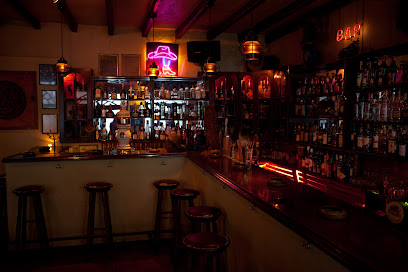
BOOTLEGGER
Discover Bootlegger in Larissa, where local culture meets vibrant nightlife in a cozy bar atmosphere.
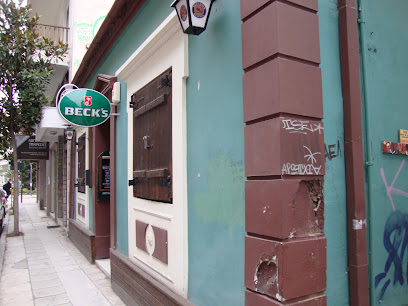
Travel experiences inspired by this city
Explore more travel diariesLocal Phrases
-
- HelloΓεια σας
[Ya sas] - GoodbyeΑντίο
[Adio] - YesΝαι
[Neh] - NoΌχι
[Ohi] - Please/You're welcomeΠαρακαλώ
[Parakalo] - Thank youΕυχαριστώ
[Efharisto] - Excuse me/SorryΣυγγνώμη
[Signomi] - How are you?Πώς είστε;
[Pos iste?] - Fine. And you?Καλά. Εσείς;
[Kala. Esis?] - Do you speak English?Μιλάτε Αγγλικά;
[Milate Agglika?] - I don't understandΔεν καταλαβαίνω
[Den katalaveeno]
- HelloΓεια σας
-
- I'd like to see the menu, pleaseΘα ήθελα να δω το μενού, παρακαλώ
[Tha ithela na do to menou, parakalo] - I don't eat meatΔεν τρώω κρέας
[Den troo kreas] - Cheers!Υγεία!
[Ygeia!] - I would like to pay, pleaseΘα ήθελα να πληρώσω, παρακαλώ
[Tha ithela na plirosso, parakalo]
- I'd like to see the menu, pleaseΘα ήθελα να δω το μενού, παρακαλώ
-
- Help!Βοήθεια!
[Voithia!] - Go away!Φύγε!
[Fiye!] - Call the Police!Καλέστε την Αστυνομία!
[Kaleste tin Astynomia!] - Call a doctor!Καλέστε γιατρό!
[Kaleste giatro!] - I'm lostΈχω χαθεί
[Eho hathi] - I'm illΕίμαι άρρωστος
[Eimai arrostos]
- Help!Βοήθεια!
-
- I'd like to buy...Θα ήθελα να αγοράσω...
[Tha ithela na agoraso...] - I'm just lookingΑπλά κοιτάω
[Apla kitao] - How much is it?Πόσο κοστίζει;
[Poso kostizi?] - That's too expensiveΑυτό είναι πολύ ακριβό
[Afto ine poli akribo] - Can you lower the price?Μπορείτε να μειώσετε την τιμή;
[Boreite na meiosete tin timi?]
- I'd like to buy...Θα ήθελα να αγοράσω...
-
- What time is it?Τι ώρα είναι;
[Ti ora ine?] - It's one o'clockΕίναι μία ώρα
[Ine mia ora] - Half past (10)Μισή (10)
[Misi (dekka)] - MorningΠρωί
[Proi] - AfternoonΑπόγευμα
[Apoyevma] - EveningΒράδυ
[Vradi] - YesterdayΧθες
[Hthes] - TodayΣήμερα
[Simera] - TomorrowΑύριο
[Avrio] - 1Ένα
[Ena] - 2Δύο
[Dio] - 3Τρία
[Tria] - 4Τέσσερα
[Tessera] - 5Πέντε
[Pente] - 6Έξι
[Exi] - 7Επτά
[Epta] - 8Οκτώ
[Okto] - 9Εννιά
[Ennia] - 10Δέκα
[Deka]
- What time is it?Τι ώρα είναι;
-
- Where's a/the...?Πού είναι ένα/το...;
[Pu ine ena/to...?] - What's the address?Ποια είναι η διεύθυνση;
[Pia ine i diefthinsi?] - Can you show me (on the map)?Μπορείτε να μου δείξετε (στο χάρτη);
[Boreite na mou dixete (sto charti)?] - When's the next (bus)?Πότε είναι το επόμενο (λεωφορείο);
[Pote ine to epomeno (leoforeio)?] - A ticket (to ....)Ένα εισιτήριο (για το...);
[Ena isitirio (ya to...)?]
- Where's a/the...?Πού είναι ένα/το...;
History of Larissa
-
Larissa, known for its strategic location in the fertile plain of Thessaly, has roots tracing back to the Neolithic era. During ancient times, it was a prominent city-state and a major cultural and economic center in Thessaly. The Aleuadae family, its ruling dynasty, significantly influenced regional politics and culture. Larissa was also known for its horse-breeding and cavalry, which played vital roles in various military campaigns.
-
During the Hellenistic period, Larissa experienced significant growth and development under the rule of the Macedonians. After the Roman conquest, it became a prominent city in the Roman province of Macedonia. Larissa's strategic location made it an important hub for trade and military activities. Roman architecture and infrastructure, such as aqueducts and baths, left a lasting impact on the city’s landscape.
-
Larissa flourished during the Byzantine era, becoming an important religious and administrative center. Numerous churches and monasteries were built, reflecting the city's spiritual significance. After falling to the Ottomans in the 15th century, Larissa became a center of commerce and learning under Ottoman rule. The city was known for its vibrant markets, educational institutions, and cultural exchanges during this period.
-
Larissa played a significant role in the Greek War of Independence in the early 19th century. Following the liberation from Ottoman rule, the city underwent modernization and expansion. Today, Larissa is a bustling urban center, known for its vibrant nightlife, cultural festivals, and historical landmarks. The city seamlessly blends its rich historical heritage with modern amenities, making it a fascinating destination for visitors.
-
Larissa is home to numerous archaeological sites and cultural landmarks that offer insights into its storied past. Key sites include the Ancient Theatre of Larissa, dating back to the 3rd century BC, and the city's Byzantine churches. The Larissa Archaeological Museum houses an extensive collection of artifacts from various historical periods, providing a comprehensive overview of the region’s history.
-
The urban landscape of Larissa has evolved significantly over the centuries. From its ancient roots as a fortified city-state to its modern-day status as a regional capital, Larissa's architecture and city planning reflect its dynamic history. The city's blend of ancient ruins, Byzantine churches, Ottoman-era buildings, and contemporary structures offers a unique architectural tapestry that tells the story of Larissa's enduring legacy.
Larissa Essentials
-
Larissa is well-connected by various modes of transportation. The nearest international airport is Thessaloniki Airport (SKG), located about 150 kilometers to the north. From Thessaloniki, you can take a direct train to Larissa, which typically takes around 1.5 to 2 hours. Alternatively, you can opt for a long-distance bus service or rent a car for a scenic drive. Larissa also has its own train station and bus terminal, making it accessible from other parts of Greece.
-
Larissa boasts an efficient public transportation network, including buses and taxis. The local bus system covers most parts of the city and is an affordable way to get around. Taxis are readily available and relatively inexpensive. For those looking to explore the surrounding areas, car rentals are also an option. The city is quite walkable, especially in the central areas where many attractions are located.
-
The official currency in Greece is the Euro (EUR). Credit and debit cards are widely accepted in hotels, restaurants, and shops in Larissa. However, it is advisable to carry some cash for smaller establishments and local markets. ATMs are plentiful throughout the city, and most offer the option to withdraw money in multiple languages.
-
Larissa is generally a safe city for tourists, but like any urban area, it is important to take standard precautions. Avoid poorly lit areas at night and keep an eye on your belongings in crowded places. While Larissa does not have specific high-crime areas targeting tourists, staying vigilant and aware of your surroundings is always advisable.
-
In case of an emergency, dial 112 for immediate assistance. This number connects you to emergency services including police, ambulance, and fire department. Larissa has several hospitals and medical facilities that are well-equipped to handle emergencies. It is recommended to have travel insurance that covers medical emergencies. Pharmacies are also available for minor health issues and over-the-counter medications.
-
Fashion: Do dress modestly, especially when visiting religious sites. Avoid overly revealing clothing. Religion: Do respect local customs and traditions. When visiting churches, dress conservatively and cover your head if required. Public Transport: Do be courteous and offer your seat to elderly passengers. Don't eat or drink on public transport. Greetings: Do greet people with a handshake. A warm 'Kalimera' (Good morning) or 'Kalispera' (Good evening) is appreciated. Eating & Drinking: Do try local delicacies and accept food offerings graciously. Don’t refuse hospitality, as it is considered impolite.
-
To experience Larissa like a local, visit the local markets, especially the farmers' market, where you can buy fresh produce and traditional Greek goods. Engage with locals; they are friendly and often willing to share stories about the city's history and culture. Don't miss the opportunity to visit the Alcazar Park and the ancient theatre of Larissa. For a unique experience, enjoy a coffee at one of the many kafeneia (traditional coffee houses) in the city.
Trending Landmark in Larissa
-
Πάρκο Αλκαζάρ
-
Mill of Pappas
-
Park of Wishes
-
Chatzichalar park
-
Diachronic Museum of Larissa
-
Ancient Theatre of Larissa
-
Larissa Ancient Ruins
-
Αισθητικό Άλσος Λάρισας
-
Mezourlos Grove
-
Β' Αρχαίο Θέατρο Λάρισας
-
Folklore Museum of Larissa
-
National Resistance Museum
-
Hippocrates Monument
-
Γενί Τζαμί Λάρισας
-
Μπεζεστένι Λάρισας
Nearby Cities to Larissa
-
Things To Do in Volos
-
Things To Do in Meteora
-
Things To Do in Katerini
-
Things To Do in Lamia
-
Things To Do in Thessaloniki
-
Things To Do in Delphi
-
Things To Do in Ioannina
-
Things To Do in Patras
-
Things To Do in Serres
-
Things To Do in Gjirokastër
-
Things To Do in Pogradec
-
Things To Do in Saranda
-
Things To Do in Corfu
-
Things To Do in Athens
-
Things To Do in Tepelenë














